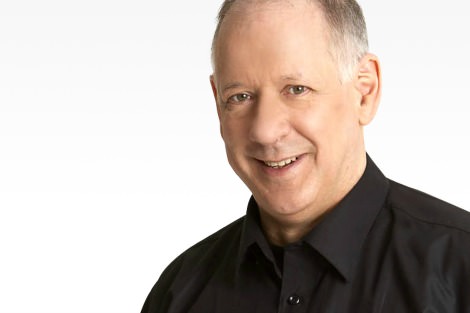Extract from Eureka Street
By Kasy Chambers | 04 December 2016
There has been a slow trickle of news outlets in Australia winding back their coverage of religion over recent years. Some might argue that this is a good thing in a secular democracy, and that discussion of religion creates division.
 This
however flies in the face of the overwhelming good that religious
belief, and religious-based organisations, do in this country. Not to
mention the fact that religion and ethics are a major part of the
narrative of society, of how we live together and how we form a
community.
This
however flies in the face of the overwhelming good that religious
belief, and religious-based organisations, do in this country. Not to
mention the fact that religion and ethics are a major part of the
narrative of society, of how we live together and how we form a
community.In 2014, Fairfax was the only media provider in the country with a dedicated religion reporter in Barney Zwartz, who worked for more than 12 years at The Age in Melbourne. In a piece in ABC Religion and Ethics in August this year, Zwartz wrote of the declined coverage of religious affairs:
'I am often asked about a decline in religion journalism. When I began covering religion for The Age in 2002, the Sydney Morning Herald and The Australian both had highly capable religion reporters, and the ABC a large and active religion department. By the time I finished 12 years later, both the other papers had long been without religion reporters and the ABC had begun its radical truncation of its coverage which is still ongoing.'
In 2011, another well-regarded program, Stephen Crittenden's The Religion Report, was axed from the ABC. The then General Secretary of the Australian Catholic Bishops Conference Fr Brian Lucas said at the time that 'the more people understand religious issues, the more we'll have a tolerant society. I think that is in touch with the way in which religion informs people's lives.'
The bosses at the ABC seemingly do not agree however. Even though The Religion Report returned a year later, rebadged as the Religion and Ethics Report, the broadcaster, which formerly boasted the most comprehensive coverage of religion, has again in recent weeks 'considerably reduced' its religious programming. Music and science programs have also been cut, to significant commentary.
The axed religion programming includes four hours of religion coverage on Sunday Nights, a program hosted for around 14 years by John Cleary (pictured).
Sunday Nights used to get around 20 per cent of available listeners. It is being replaced by a program called God Forbid, which will air on Radio National and will only get, at most, 3 per cent of available listeners. This illustrates the level of what has taken place, and should raise alarm bells about the strategic direction of the national broadcaster.
"The issue is not so much a secularisation of our public media, but the lack of commitment to diversity and fostering harmony that these changes signal."
The Conversation published a comprehensive analysis of the cuts in a piece by Siobhan McHugh, a senior lecturer in journalism at the University of Wollongong. She believes the ABC is going for cheaper content, more talk, and are letting go of a cultural treasure trove. 'Given how much religion has informed the geopolitical landscape since 9/11, it is extraordinary that the ABC would terminate a presenter (Cleary) who is not only manifestly expert in this sensitive area, but whose ratings are also remarkable.'
While there is plenty of evidence to show that religious practice in this country is in decline, those who are interested in religion and profess religion are not a minority in Australia, meaning it makes little sense to cut religious programming. The National Church Life Survey (NCLS) data shows that over the last four decades the proportion of Australians attending church at least once per month has more than halved from 36 per cent (1972) to 15 per cent. However this is still a significant proportion of the Australian population. Indeed twice as many Australians attend church at least once per month than attend games of all football codes combined.
The ABC's religion producers include experts across a number of religious traditions including Buddhism, Judaism, Islam and various Christian denominations. In recent months, they have covered evangelical Christianity and the American election;social justice issues including Anglicare's unemployment report; the Hindu Festival Diwali, and Islam's contribution to public policy.
The journalists involved in this type of programming thoroughly research and back up each of their stories to avoid common mistakes made by inexperienced reporters.
Religious reporting isn't something that can be done in a sloppy way. You have to know the intricacies of what it means to be a Muslim; how to address a Catholic Cardinal; and what the differences are between the various branches of the Anglican Communion. In this, the good also becomes evident. In reporting objectively, and understanding the complexities of faith, tolerance and understanding grows.
It's not just Christian leaders who are concerned about this move. The issue is not so much a secularisation of our public media, but the lack of commitment to diversity and fostering harmony that these changes signal. Social service organisations like Anglicare frequently see the results of lack of understanding in our work. We always say that a good education is worth its weight in gold in creating understanding and going beyond just tolerance, but towards actual kinship.
More and more, our social services (including those provided by Anglicare and other Christian inspired organisations) reflect the growing diversity in this country, and it's important that people can appreciate and understand the richness that this brings.
Presenters and ABC staff have been unable to speak on the record about the cuts, but there is growing discontent among the staff across more than just the religion and ethics producers.
'So toxic is the atmosphere at RN that none of the RN employees I spoke to for this article would be named,' wrote McHugh. 'At the time of writing, a meeting of some 60 Sydney staff had passed a unanimous motion of no confidence in RN management, complaining of a lack of consultation about the changes, an erosion of producer control over program content, an undermining of specialist content and a top-heavy management-to-producer ratio.'
Religious reporting is not the niche market it is being portrayed to be, and its educative and awareness-raising capacity have been a real gift. And, as Joni Mitchell said, we won't know what we've got until it's gone.

No comments:
Post a Comment